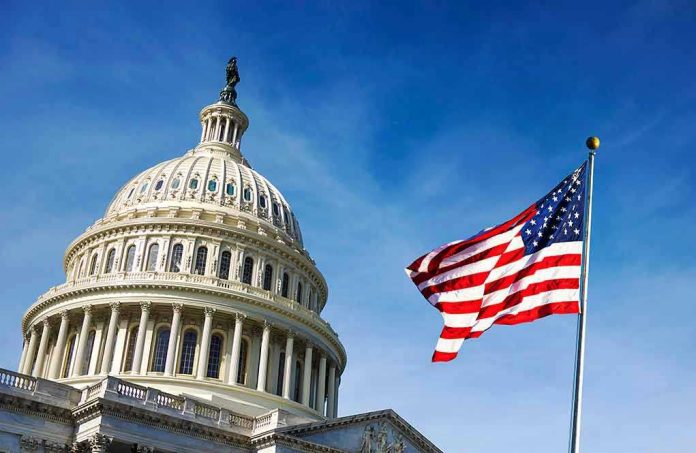
Colombia just recalled its ambassador from Washington as President Trump escalated a diplomatic showdown that could reshape U.S.-Latin American relations for years to come.
Story Snapshot
- Colombia recalled its ambassador to the United States following escalating tensions with President Trump
- Trump announced the end of U.S. aid to Colombia as part of an intensifying feud with President Gustavo Petro
- The diplomatic crisis threatens decades of cooperation between the two nations
- The confrontation signals a potential shift in U.S.-Latin American diplomatic relationships under Trump’s leadership
Diplomatic Crisis Erupts Between Historic Allies
The recall of Colombia’s ambassador to Washington represents one of the most serious diplomatic ruptures between the United States and Colombia in decades. This dramatic escalation follows what sources describe as a “heated feud” between Trump and Colombian President Gustavo Petro, transforming what were once strong bilateral ties into open hostility. The ambassador’s withdrawal signals Colombia’s unwillingness to tolerate what it perceives as aggressive diplomatic pressure from the Trump administration.
Trump Cuts Aid to Key Regional Partner
President Trump’s decision to terminate U.S. aid to Colombia marks a significant shift in American foreign policy toward one of its most important South American allies. For years, Colombia has been a cornerstone of U.S. strategy in Latin America, particularly in counter-narcotics operations and regional stability initiatives. The aid cutoff represents more than just financial consequences, it fundamentally alters the strategic partnership that has defined U.S.-Colombian relations for generations.
The timing of this diplomatic breakdown raises questions about the broader implications for American influence in South America. Colombia has traditionally served as a reliable partner in regional security matters, making this rupture particularly significant for U.S. strategic interests in combating drug trafficking and maintaining regional stability.
Petro’s Left-Wing Government Challenges U.S. Influence
President Gustavo Petro’s administration has consistently challenged traditional U.S. policies in Latin America since taking office. His left-leaning government has openly criticized American foreign policy approaches, particularly regarding drug interdiction strategies and economic policies. This ideological clash has created friction that appears to have reached a breaking point under Trump’s more confrontational diplomatic style.
The feud between Trump and Petro reflects broader tensions between conservative American foreign policy objectives and the progressive agenda of Colombia’s current government. Petro’s resistance to U.S. pressure demonstrates how Latin American leaders are increasingly willing to challenge American diplomatic dominance, even at the cost of valuable aid and partnership agreements.
Regional Implications of Diplomatic Breakdown
The Colombia crisis could signal a broader recalibration of U.S.-Latin American relations under Trump’s leadership. Other regional governments are likely watching closely to gauge how far the administration is willing to go in pressuring allies who resist American policy preferences. This diplomatic showdown may encourage other Latin American nations to distance themselves from Washington or, conversely, make them more cautious about challenging U.S. positions.
The loss of Colombian cooperation could significantly impact U.S. counter-narcotics efforts and regional security operations. Colombia’s strategic location and previous partnership in drug interdiction made it an invaluable ally in combating cocaine trafficking and regional criminal organizations. Without this cooperation, American efforts to address drug trafficking at its source face substantial new challenges.
Sources:
Colombia recalls ambassador to US







